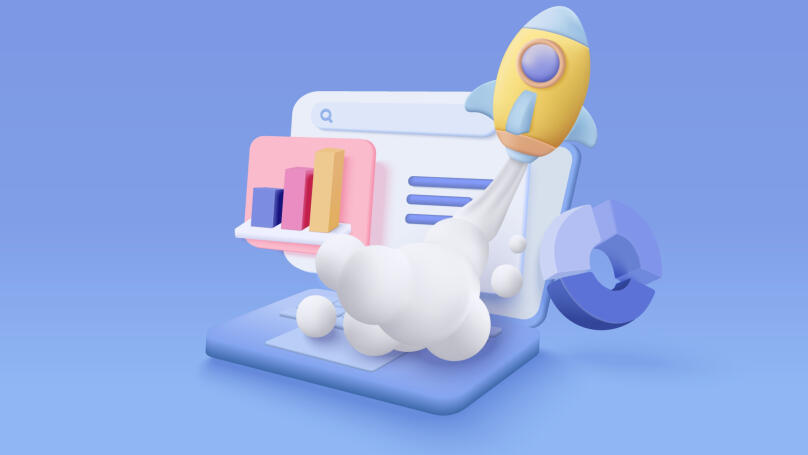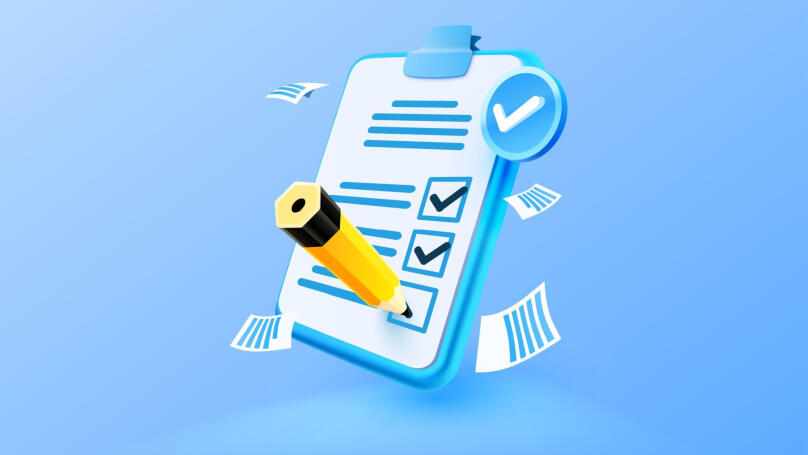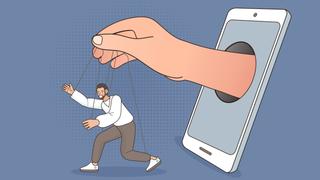Product manager

What is a product manager?
A product manager is a professional who knows how to recognise the needs of potential customers and develop them into business goals. They can create a product (sometimes from scratch), and they know how to convey the ideas they already have in their mind to their team and then have them execute them. A product manager's job description involves working concurrently with technology, business interests and customer experience. The product manager oversees all the team's work, makes tactical decisions, and assigns all tasks and duties. Which then determines the success of a product. A professional in this position must lead their work colleagues and be an outstanding manager.
Different types of product managers
Product managers can work in marketing, and they can also be technical professionals or be primarily focused on software. However, other characteristics distinguish them.
In addition to the product manager, there is also the product owner. This means that the product owner supports developers, employs user experience, and prioritises tasks and internal stakeholders. A product development manager is involved in increasing indicators from a marketing position: they can determine how to retain customers, tempt them to use a new product, and what to do if the average customer's income decreases. Additionally, teams usually have a product manager who communicates with developers and designers, sharing what the senior product manager wants to see.
The responsibilities of a product manager
What does a product manager do? This depends on the size of the company and their team. The bigger the company, the more opportunities it has to share responsibilities among experts in the same area.
If it is a small company, the product manager's tasks include:
-
Researching user needs and their structure.
-
Analysing the market and competitors.
-
Developing a product vision.
-
Prioritising product functions and forming a task list.
In a large company, product managers are responsible for the following tasks:
- Strategic planning
The definition of this term is as follows: the product manager will consider how the product will develop, what qualities it will have, why this product must include them, and what initiatives will be introduced into its environment in the near future. Almost all product manager jobs require that the candidate applying for the position possess the ability to create strategies and defend them in front of their managers.
- The planning stages of work
This is fairly straightforward: You set priorities and decide when various features will be developed, using your experience examining competitors' practices or taking advice from experts from your company. The product manager KPIs include a productive and effective work plan.
- Evaluating proposals
The product manager is not expected to come up with ideas or flow with exaggerated enthusiasm with new suggestions. However, they will need to separate bad ideas from good ones and be able to explain their decisions. They also need to develop product ideas, manage an idea pooling process, and determine which concepts will be developed in the future and which are required immediately.
- Create product roadmaps
This is a continuation of the previous duties. Imagine that you have devised several ideas and figured out how to improve the product and what to fill it with. Now, you have to visualise achieving your business aims in a roadmap. You can make a roadmap on a special platform or independently in a document on a personal computer. There is no distinction between these two methods; the main concern is that you complete the map.
- Analysing everything that can be analysed
A product manager is always focused on achieving results. Therefore, they always analyse their actions to improve products, look at competitors, markers, customer interest, etc. If you are a product manager, you must know how effective your team is, how to keep them motivated, how various initiatives are progressing within the team, what causes inefficiency and work to be slow, what can be reduced or levelled, etc. Despite its apparent complexity, analytics can be performed by an experienced professional and a junior product manager.
Qualification levels of product managers

The first level is associate product manager. You will achieve this role after entering an entry-level position or becoming an aspiring professional. This title is also given to members of leadership programs from organisations that need good professionals. Sometimes, professionals at the first level of development are called assistant product managers.
The second level is the junior product manager. They do not need the practical training that affects the first level. Their salary is higher, although by not much. A junior manager is employed without a mentor and can independently supervise projects because they already possess relevant work experience and knowledge regarding the correct sequence of actions.
The third level is the role of product manager. This position means you have enough qualifications to undertake multiple projects, manage small teams, and independently make product development decisions.
The fourth level is the senior product manager. They possess more experience than the third level. Sometimes, these professionals are called seniors due to the importance of the product they are working on or the significance of their contribution to the development of the environment. The role often involves managing large teams.
The fifth level is the lead product manager. They are responsible for a serious project; their experience allows them to make decisions and change strategy "instantly" and calmly. Normally, top managers do not manage others, although they stand on the sidelines.
The sixth level is the product director who manages other managers, coordinates their suggestions, does not work with their hands, and enhances their ability to interact with top management through soft skills.
The seventh level is the product owner. They manage all managers and represent the top professional chain responsible for a project. The product manager decides on the team's budget and is sometimes responsible for reporting and profit.
The eighth level is CPO, Chief Product Officer. These professionals manage several management teams and several products. The number of projects they manage depends on the size of the company. They are responsible for a product development strategy.
Skills required by a product manager

What makes a product manager an outstanding professional? Excellent skills, of course! So, what skills do you need to become a professional in this field? We include them in the list below.
- An understanding of development principals
Most commonly with products that developers design. You will have to understand their jargon and the principles of their work. It's unnecessary to start writing code yourself, but some managers need to learn how.
- A familiarity with technical requirements
You can only work on a product if you understand the reasons for the final result from a technical viewpoint. If you work for NASA, then you are unlikely to expect that humanity will learn about the existence of aliens and get to know them the following week. It is similar to a product, although it lacks civilisations from other galaxies.
- The ability to conduct marketing research
Researching the market and your competitors is crucial for deciding whether to introduce new functions and features. A product manager can usually assess customer needs and problems, conduct in-depth interviews and cast developments, collect customer feedback, survey them, work with focus groups, and test theories.
This also includes knowing how to interact with the customers to find out as much as possible about their preferences, not frightening them with intrusive questions, and reassuring them if something happens.
- A knowledge of UX design
The user journey represents a considerable factor in any product. A product is largely chosen because of the user's journey. The more expertise you have in this field as a product manager, the better it is for your career path. This knowledge will enable you to understand the same language as the development and design team, and you can then propose suggestions to be tested.
- Can think critically
Do not take everything at face value - learn to gauge the validity of any information you are being given. You must provide your colleagues as much as possible with effective and thorough information. It is impossible to make an effective decision about a product without the ability to look at different scenarios.
- Have leadership qualities
People are willing to follow good product managers. To become a product manager, you must grow your leadership qualities, learn how to become one and reveal your charisma. It's not easy, but it's definitely possible. There are leadership training initiatives - study those available in your area and try to understand what it is like to be a leader even before you become a product manager! If you know how to lead, managing teams will become far easier.
- Are flexible
Product management is all about having a flexible approach. So be prepared to change your plans, strategies, and ready-made roadmaps almost daily! Discover how to prioritise, embrace change, and remain flexible in your business. Perhaps this is the key to successfully developing products in different markets.
- Have effective time management skills
Time management is extremely important when producing a brilliant product. Being able to allocate time between different projects, products, and people is a quality that will enable you, as a product manager, to become one of the best in your field. Without effective time management skills, you will quickly become surrounded by numerous tasks you don't have enough hours to complete. Likewise, the employees you manage will have a similar story because you will also be responsible for sharing their tasks.
- Have excellent communication skills
The more you know how to communicate with others and get your message across, the easier it is and the simpler it will be to resolve any issues you face. A product manager will have to communicate a lot with others in one way or another, so it is recommended that you learn how to establish business relationships even before you receive an offer for a product manager position. Fortunately, you can now obtain a certification even on communicating with customers and employees.
Product manager vs. product owner

What is the difference between a product owner and a product manager?
The product manager works with external stakeholders (stakeholders involved in the product process). They demonstrate a product's vision and ways they can achieve its aims. The product manager works with marketing, together with their ideas for product development, a return on investment and strategies to increase it. Their work is mostly conceptual rather than dedicated to daily processes.
Unlike the product manager, the product owner works with the internal stakeholders of a product. They help others understand the product's vision and development that the product manager has created, outlining plans for achieving objectives and breaking them down, examining the team working on the product's backlog, and not becoming involved in everyday tasks.
The responsibilities of a product manager and product owner may vary depending on the size of the team, the methods it employs, and how many employees are present in the team. For example, if the team has not used Scrum (and the product owner is in a position that came about due to using Scrum and is experienced with this technology), the product owner can then be involved in the daily routine, manage the team whilst doing their normal jobs, and pay attention to internal stakeholders. This, by the way, does not stop them from working on their other duties. New KPIs are then added to the already existing indicators regarding the business success of a product (for example, conversions, income, and outflow of product consumers).
Product manager vs. project manager
What other differences are there between a product manager and a project manager?
A product manager determines product KPIs, researches the target audience's needs, conveys this to their team, manages or works with teams with different roles, looks for ways to improve the product, monitors performance, tests new features, and analyses competitors. A project manager is fully involved in a set of tasks, organises them, works with schedules and budgets, resolves issues that arise during the project, becomes the driving force behind the real transformation of their team, and deals with software, employee motivation, and their work schedules.
Product manager tools and software
What tools do product managers most frequently use? We have gathered together several popular services and briefly outlined them below.
- Monday.com
This is a simple kanban board. Ideal for sprints, tracking work and activities. Teams of any size can utilise it to evaluate employee performance and structure information. It is simple, intuitive, and can be integrated with other services such as Slack, Google Drive, Jira, GitHub, Trello, or Dropbox.
Monthly access starts from $8.
- Craft.io
A service for product lifecycle management, allowing you to gather feedback, set priorities, plan, manage, and create roadmaps. You can form templates for almost any action, greatly simplifying your workflow. It also combines nicely with numerous applications: Jira, GitHub, Teams, Slack, Dropbox, Google Drive and more.
Monthly access starts from $39.
- ClickUp
A simple software program capable of capturing any process. It combines a task tracker, chat, document organising and creation. It also has a dashboard with analysis. The company has a university where they will show you how to work with the application. There is a lot to discover here: inside the service, there are task boards, roadmaps, tracking reports about employee workload, guest accounts, and so much more. It integrates with many professional platforms and sources.
Monthly access starts from $9.
How do you become a product manager?
To get started, take a product manager course - they will help you gain knowledge, meet future colleagues and, perhaps, find your first recommendation for a job. Develop your product management skills outside of the course - improve your skills by participating in projects and case championships to obtain new qualifications. This will enable you to quickly create a truly captivating portfolio and be remembered by employers. You can then apply for leadership programs, internships, or junior positions at some of the companies that interest you most. Take advantage of recommendations from colleagues with whom you collaborated on projects when preparing your portfolio!
Learning by topic
How To Become Proactive and Achieve All Your Goals
Exploring ourselves, recognising our desires and setting priorities
Conclusion
Individuals who consider themselves organised, ideologically understand marketing, and are interested in the wide-ranging development of a service or product can become product managers. If you want to try your hand in this area, be strategic (including in your training and job search), discover how to be empathetic and develop relationships with others around you, be patient and calm, and what you plan to achieve will be successful.























